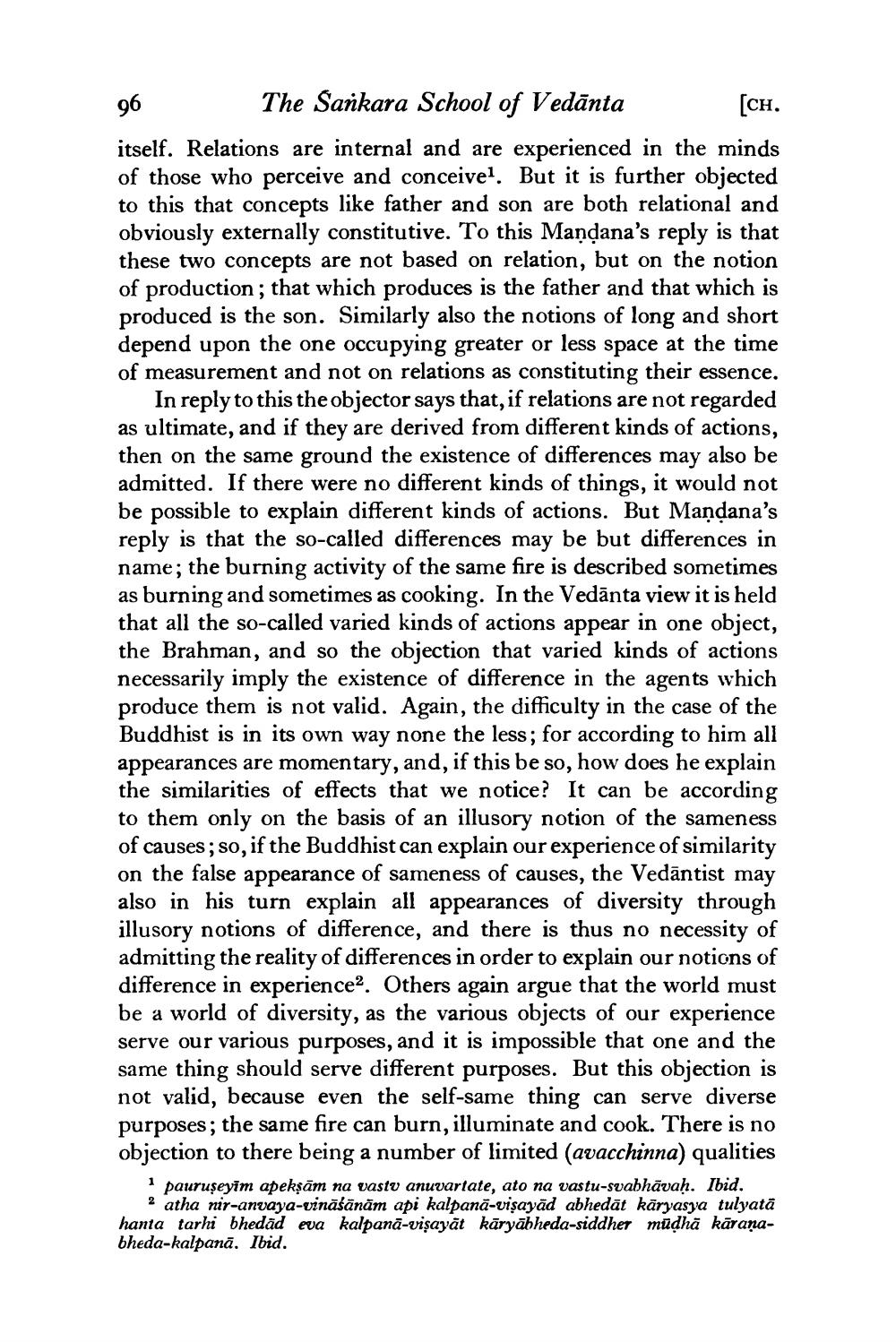________________
96
The Sankara School of Vedānta
(CH. itself. Relations are internal and are experienced in the minds of those who perceive and conceivel. But it is further objected to this that concepts like father and son are both relational and obviously externally constitutive. To this Mandana's reply is that these two concepts are not based on relation, but on the notion of production; that which produces is the father and that which is produced is the son. Similarly also the notions of long and short depend upon the one occupying greater or less space at the time of measurement and not on relations as constituting their essence.
In reply to this the objector says that, if relations are not regarded as ultimate, and if they are derived from different kinds of actions, then on the same ground the existence of differences may also be admitted. If there were no different kinds of things, it would not be possible to explain different kinds of actions. But Mandana's reply is that the so-called differences may be but differences in name; the burning activity of the same fire is described sometimes as burning and sometimes as cooking. In the Vedānta view it is held that all the so-called varied kinds of actions appear in one object, the Brahman, and so the objection that varied kinds of actions necessarily imply the existence of difference in the agents which produce them is not valid. Again, the difficulty in the case of the Buddhist is in its own way none the less; for according to him all appearances are momentary, and, if this be so, how does he explain the similarities of effects that we notice? It can be according to them only on the basis of an illusory notion of the sameness of causes; so, if the Buddhist can explain our experience of similarity on the false appearance of sameness of causes, the Vedāntist may also in his turn explain all appearances of diversity through illusory notions of difference, and there is thus no necessity of admitting the reality of differences in order to explain our notions of difference in experience. Others again argue that the world must be a world of diversity, as the various objects of our experience serve our various purposes, and it is impossible that one and the same thing should serve different purposes. But this objection is not valid, because even the self-same thing can serve diverse purposes; the same fire can burn, illuminate and cook. There is no objection to there being a number of limited (avacchinna) qualities
pauruşeyim apekşām na vastu anuvartate, ato na vastu-svabhāvaḥ. Ibid.
2 atha nir-anvaya-vināśānām api kalpanā-visayād abhedāt kāryasya tulyatā hanta tarhi bhedād eva kalpana-visayāt kāryābheda-siddhet mūdhā kārañabheda-kalpanā. Ibid.




